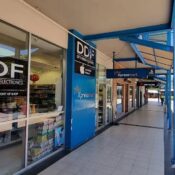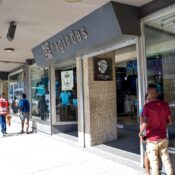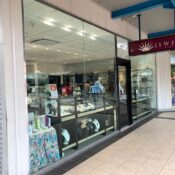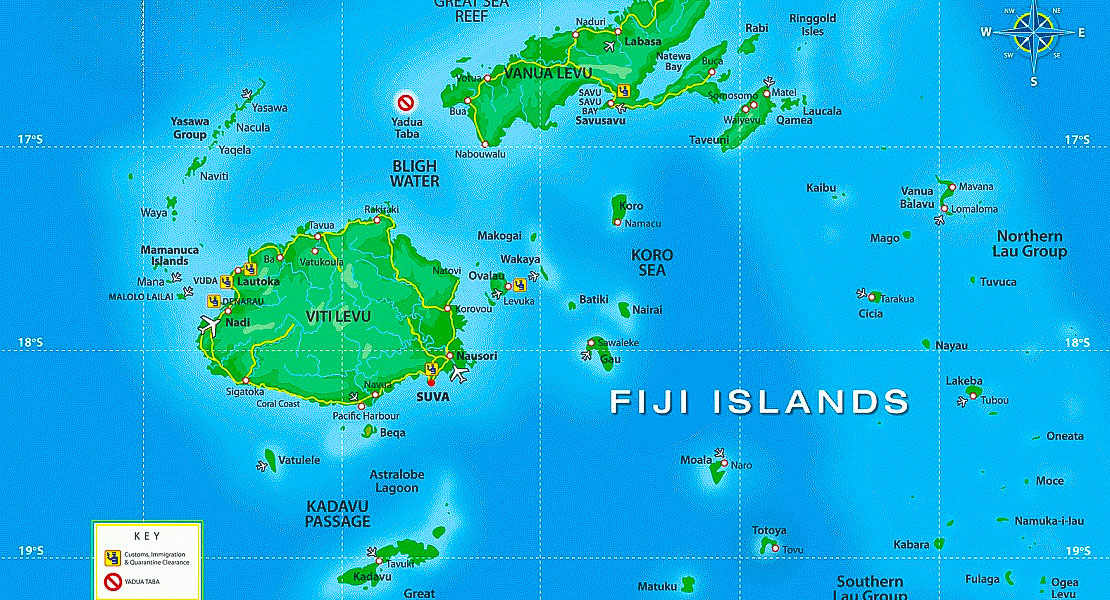Map Of Fiji

Map Of Fiji
Fiji, an archipelago nestled in the heart of the South Pacific Ocean, is a tropical paradise renowned for its breathtaking natural beauty and warm hospitality. Comprising over 300 islands, Fiji boasts pristine white-sand beaches, crystal-clear turquoise waters, and lush green landscapes. The vibrant coral reefs surrounding the islands make it a haven for snorkelers and divers, offering an immersive underwater world teeming with colorful marine life. Beyond its stunning scenery, Fiji is celebrated for its diverse culture, where the traditions of indigenous Fijians blend harmoniously with influences from Indian, Chinese, and European communities. Visitors can experience the welcoming “Bula” spirit, characterized by friendly smiles and genuine warmth. With a rich tapestry of traditions, stunning landscapes, and a laid-back atmosphere, Fiji stands as a captivating destination that beckons travelers to unwind and discover the allure of this South Pacific gem.

Denarau, located near Nadi on the western coast of Viti Levu in Fiji, is a picturesque resort area known for its luxury accommodations and pristine beaches. This man-made island is a hub for upscale tourism, featuring world-class hotels, golf courses, and a stylish marina. Denarau is a popular destination for those seeking a tropical paradise with all the amenities. Visitors can enjoy water sports, relax by the pool, or indulge in spa treatments while taking in the breathtaking views of the Pacific Ocean. The island is also a gateway to the stunning Mamanuca and Yasawa Islands, making it an ideal starting point for exploring the beauty of Fiji. Denarau is synonymous with luxury and leisure, providing an idyllic escape for those looking to experience the finer side of Fijian hospitality.

Nadi, situated on the western coast of Viti Levu in Fiji, serves as a bustling gateway for travelers arriving by air to the archipelago. Home to the country’s international airport, Nadi is often the first taste of Fijian hospitality for many visitors. The town itself offers a mix of cultural experiences, with Hindu temples, vibrant markets, and a lively atmosphere. The nearby Garden of the Sleeping Giant showcases an impressive collection of orchids and tropical plants, providing a serene escape. Nadi’s proximity to the popular Mamanuca and Yasawa Islands makes it a convenient base for exploring Fiji’s stunning beaches and coral reefs. With its welcoming spirit and strategic location, Nadi provides a vibrant introduction to the diverse attractions that Fiji has to offer.

Suva, the capital and largest city of Fiji, is a bustling urban center situated on the southeastern coast of Viti Levu. Known for its lively atmosphere and cultural diversity, Suva offers a blend of modernity and traditional Fijian charm. The city features a mix of colonial architecture, vibrant markets, and contemporary buildings. Visitors can explore the Fiji Museum, showcasing the country’s rich history and cultural heritage. Albert Park and Thurston Gardens provide peaceful green spaces in the heart of the city. Suva’s lively municipal market is a vibrant hub where locals and visitors alike can experience the colors, flavors, and aromas of Fijian produce. The city is also a gateway to nearby natural wonders, including Colo-i-Suva Forest Park. With its dynamic energy, cultural richness, and strategic location, Suva stands as a key hub for exploring the diverse facets of Fiji.

Pacific Harbour, located on the southeastern coast of Viti Levu in Fiji, is renowned as the adventure capital of the country. This idyllic destination is a haven for thrill-seekers, offering a range of adrenaline-pumping activities. One of the highlights is the Beqa Lagoon, known for its world-class diving, particularly the famous Shark Dive where divers can encounter various shark species in their natural habitat. In addition to diving, Pacific Harbour provides opportunities for white-water rafting on the scenic Navua River, zip-lining through lush rainforests, and exploring the Arts Village for a taste of Fijian culture. With its breathtaking landscapes and a plethora of adventurous pursuits, Pacific Harbour stands as a must-visit destination for those seeking excitement and natural beauty in Fiji.

Lautoka City, often referred to as the “Sugar City,” is a lively urban center on the western coast of Fiji’s main island, Viti Levu. Renowned for its sugar cane industry, Lautoka boasts a vibrant atmosphere and a mix of cultural influences. The city’s waterfront is lined with palm trees and offers stunning views of the Pacific Ocean. Lautoka is also known for its diverse population, reflecting Fiji’s multicultural identity. Visitors can explore the local markets, filled with tropical fruits, handicrafts, and spices. The city is a gateway to the scenic Sabeto Valley and the Garden of the Sleeping Giant, showcasing Fiji’s lush flora. With its bustling markets, friendly locals, and cultural richness, Lautoka City is a delightful destination for those seeking an authentic Fijian experience.

Sigatoka Town is a charming and vibrant destination situated on the Coral Coast of Fiji. Known for its welcoming atmosphere and picturesque surroundings, Sigatoka is a popular stop for both tourists and locals alike. The town is set against a backdrop of lush greenery and rolling hills, creating a serene and tranquil environment. Visitors can explore the bustling local markets, where an array of fresh fruits, vegetables, and handmade crafts are on display. The Sigatoka River, winding through the town, offers opportunities for river cruises and scenic walks along its banks. With its warm hospitality, cultural richness, and natural beauty, Sigatoka Town encapsulates the essence of Fiji’s allure.





